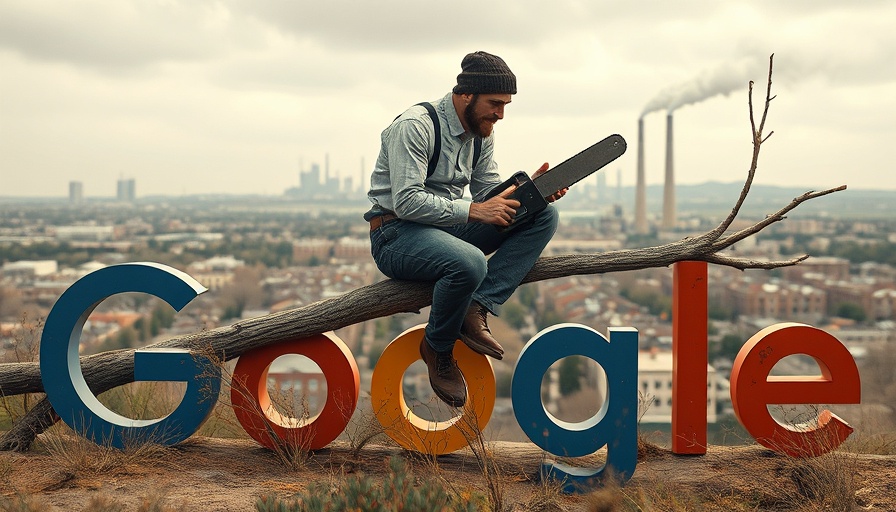
The Dichotomy of Google’s Relationship with Publishers
In recent discussions about the future of search technology, an ex-Googler has shed light on the corporate philosophy surrounding publisher traffic, describing it as a "necessary evil." This revelation starkly contrasts with outward statements from Google leaders like CEO Sundar Pichai, who publicly assert the company's commitment to fostering an open web. The friction between these narratives raises important questions about the relationship between tech giants and content creators, especially in an era where digital advertising monopolies loom large.
Understanding Changes at Google: The Role of AI
Elizabeth Reid, the VP of Search at Google, highlighted in a Bloomberg profile that the search engine is undergoing a "constant evolution" rather than a complete overhaul. This shift began in earnest in 2021, aligning with rising user expectations driven by advancements in artificial intelligence. As traditional search functionalities appear to take a backseat, the company is implementing a myriad of strategies geared toward adapting to evolving user interactions and preferences.
The Evolution of Search: A Top-Down Approach?
Reid emphasizes that this is not just a random transformation; it's Google proactively responding to its user base's desires. Her philosophy, purportedly shaped by experiences gained during her tenure with Google Maps, suggests that rapid experimentation can yield faster insights into user behavior, thereby informing search adjustments. Consequently, the traditional search bar may become less prominent as Google explores smoother, more intuitive ways to assist users—potentially integrating voice and visual search.
The Publisher's Predicament: An Unfair Bargain?
Despite Google's claims of bolstering the web ecosystem, the comment from the ex-Googler suggests a disconnect. “Giving traffic to publisher sites is kind of a necessary evil,” they stated. This perspective indicates a tension; Google aims to keep audiences engaged with its own services while compromising the visibility of external content—thus straining the relationship with publishers. Such sentiments raise concerns over whether Google’s policies genuinely support content creators or merely serve its commercial motives.
What Current Googlers Are Saying
Contradictory to the concerns of past executives, current Googlers at recent events have continued to stress their commitment to the web experience. They maintain that Google believes in the importance of traffic to publishers but face pressures related to user retention and service consumption. This ongoing internal debate raises questions about the balance Google will strike between maximizing its service engagement while still valuing authentic content contribution from publishers.
A Future Where Search Helps Everyone
As we navigate this complex landscape, it remains crucial for stakeholders—publishers, users, and tech firms—to engage in dialogue about the nature of digital economics. With Google's preeminence shaping the internet experience, understanding its motivations could inform how creators adapt their strategies to best position themselves in the evolving market. The ongoing transformation presents an opportunity for innovative approaches to content distribution that align with both audience needs and corporate interests.
 Add Row
Add Row  Add
Add 






Write A Comment